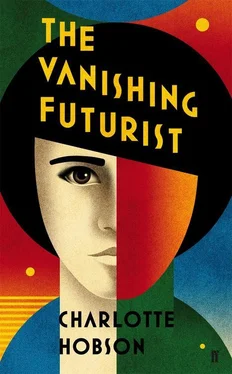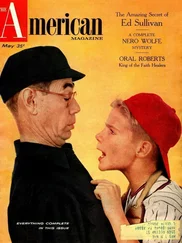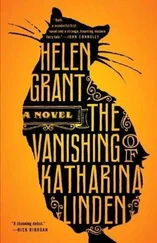‘ Batiushka .’ Beside me, his voice echoed out suddenly. ‘Light a match, would you, Pasha? Father, we mean you no harm, but we must ask you to give us something.’
‘I know you, don’t I?’ The priest approached, peering into Slavkin’s face. ‘You’re the boy from Alekseevo…’ His voice quavered. ‘Yes, the son of… I don’t remember. I knew your father, didn’t I?’
As quickly as it had come, the happiness left me, and I felt queasy.
‘Yes, I’ve come to see you again, with my friends this time,’ said Slavkin. ‘We need something that you have. Give it to us, and we’ll not disturb you again.’
‘What can I give you? I have nothing left—’
‘I want the cup. Not that one, the other.’
The priest let out a feeble cry. ‘But this is the Host! I cannot give it to you – a mortal sin!’
‘Then we shall take it, and spare you the sin,’ said Slavkin calmly. He stepped forward and removed the cup from the altar. ‘Come, everyone, let’s go.’
The cup, as Slavkin knew, was another of those made of iridium. It had probably come from the same region of Siberia. On the way back he was jubilant, hopping from foot to foot. ‘Now we can build the Future, don’t you see?’
When we arrived home he disappeared immediately into his workshop. I lay awake in my bed through all the jagged night, listening as the wind stripped the last leaves off the trees. Even now the old priest’s sobs in the darkness sometimes come back to me.
* * *
‘Don’t give up,’ Slavkin used to say. If you were feeling discouraged, before you’d even uttered a word – just at a look or a sigh, he’d come close to you, take your face in his hands and say it very gently but with tremendous force. It felt loving but absolute. I find myself repeating it now, as I try to marshal my thoughts: don’t give up in the face of the mass of detail, the thunder of voices all competing to tell the story of Slavkin’s life. Don’t give up, despite the horrors. I promised that I’d tell Sophy everything.
In November 1918, just as Slavkin was starting work on the last great scientific achievement of his life, our world was almost drowned by a flood of distractions. Nikita, Pasha and I came home one evening to find our little gatekeeper, Kolenka, sobbing in the street.
‘ Sovdepy – Soviet deputies – they broke down the gate!’
Prig stood at the front door, hands on his hips.
‘Good evening, comrades,’ he said smoothly. ‘As you know, due to the compression of living space throughout the capital, this house is due for resettlement.’
‘Prig!’ exclaimed Pasha. ‘This household is not just any old house—’
‘Comrade,’ snapped Prig, ‘I would remind you that such forms of address are not suitable nowadays. I assure you, there’s nothing special about this house.’
There was a pause.
‘Please let me explain, Comrade Prigorian,’ Slavkin started. ‘We are running an experiment in communal living here that, if successful, will be a model to replicate all over the country. If on the other hand we are now swamped by people who do not understand our aims, the whole project will be destroyed. What’s more, we have a scientific workshop on the premises that comes under the control of the Narkompros – I will show you the order from Commissar Lunacharsky—’
‘I already know about the workshop. Finished, boys?’ Prig called to his men. ‘Come on—’
‘I myself also have special status as a key worker for the Revolution that permits extra living space, and—’
‘I know about your status too. However, we have inspected the premises and ascertained that there is at least 500 square metres of unused space.’ Prig and his boys clattered across the yard. As they rounded the corner he said, ‘I would have thought you would welcome the genuine narod , the people, into your experiment.’
I saw Pelyagin the next day for his lesson and told him of our troubles. We had long ago smoothed over the incident at the Café Pittoresk. He had a tendency to see things in black and white, but there was something touching about him, the way his feet barely touched the floor when he sat in his chair, the little, faintly pleading look he gave me as he peeped over the Illustrated London News – I couldn’t help liking him.
‘I will see what I can do,’ he promised, nodding seriously at me. He seemed flattered to be asked, which rather reduced my faith in his ability to help.
* * *
Within days a total of forty-two people had arrived at the doors of Gagarinsky Lane dragging cartloads of belongings and pouncing on every inch of space. Our little Kolenka pounced with them, securing for himself the official papers to a small storeroom off the kitchen. Volodya, Vera and I stayed at home for the whole day in order to fight our corner, but nonetheless we ended up with only three rooms between the thirteen of us – the study, Slavkin’s workshop and the old ladies’ bedroom. This caused some friction, as Nikita was adamant that his workshop must not be used for any purpose other than the Socialisation Capsule, while the rest of us resisted the idea that we should make do with just two rooms for all the other activities of the commune.
‘Nikita,’ Marina snapped, ‘where are we to do the Model T, now it is almost winter? Where are we to eat communally? Have you gone mad? We are abolishing the private, and you are trying to keep to your ivory tower? I simply don’t understand.’
‘I know this work of yours is important,’ said Fyodor, ‘but surely even you can agree that the commune needs more than two rooms.’
‘The advance of Science must take precedence,’ Slavkin dismissed us.
A metalworker and his family moved into the dining room, seven of them. They told terrifying stories of life in the Volga region under the boots of one, then another army occupation, while they lay in a dugout with the trapdoor closed over their heads and ate beechnuts. At last the Whites were driven out and the local Bolshevik commander gave him a travel pass to Moscow as a worker with a skill useful to the Revolution. His children looked like five tiny old people, eyes shrunken in their yellow faces. Without consulting the others, Vera and I gave them dried apples and pickles from our stores.
Upstairs seven families of factory workers moved in. Servile and monosyllabic to our faces, they were aggressive filchers of any morsel of firewood, any utensil, any scrap of clothing behind our backs. The sign saying ‘Institute for Revolutionary Transformation’ was taken down by the cadres, and our decorations in the hall – ‘Come On, Live Communally!’, and the portraits of Marx and Engels in red paint – were covered over with decrees from the Soviet. We fixed locks and chains to our doors, but that didn’t stop someone from forcing open the window and stealing our cooking pots and soap. Volodya, Fyodor and I marched into the bedrooms and took back everything of ours that we could identify, although one woman – a dark, mustachioed termagant with arms like Christmas hams – had the gall to cling on to one of our mixing bowls, howling so loudly that she was being robbed, that we left her to it.
The main bedrooms at the front of the house were taken over by a group of ex-soldiers who made all our lives a misery with their constant drinking, fighting and ripping up pieces of the house to burn in their fireplace.
‘These people may look like the proletariat, but they were born in Russian villages; you know that really means they are of the Paleolithic era,’ said Fyodor. He looked surprised when Pasha and I laughed. ‘I’m making a serious point!’
Of course he was; I don’t think Fyodor ever knowingly joked in his life. He forgave us then, although not for much longer.
Читать дальше





![Майкл Муркок - Спящая волшебница / The Sleeping Sorceress [= Участь Белого Волка, Рыцарь Хаоса, The Vanishing Tower]](/books/327544/majkl-murkok-spyachaya-volshebnica-the-sleeping-sorc-thumb.webp)






